I used to get mini panic attacks when asked the question, “where are you from?”
My brain would go into a frantic mode:
“Oh no! Where am I? Who is asking? Why are they asking? And which of my rehearsed lines should I give this time?”
Generally, it is still a bit hard for me to answer that question because depending on who is asking and in what setting, I give a different response. I can’t really say I’m from Georgia. Or Tennessee. Or Maryland. Or Tanzania. Or the DRC. And it is not enough for me to just say I am from Burundi. Each of these replies cannot stand alone. Individually, the clauses do not do me justice. When I receive the question and I feel inclined to elaborate, a BUT, or a GREW-UP, and or an ORIGINALLY has to be added to whichever clause I decide to run with. And when I really need to, then I give a full version of the “I’m from” by putting the clauses together.
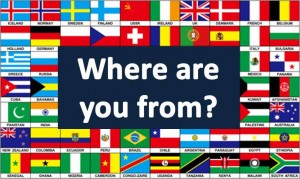
It had been a few years since my mind froze at the million-dollar question. I thought I was no longer prone to mini panic attacks, until being a student at Sciences Po Paris Campus. This city has resurrected the brain frantic moments. As to be expected, the campus is full of students from all over the world. Almost every day you are meeting new people and hence, the need for constant introductions. And of course, in this kind of setting, there is no introduction without stating where one is from.
When the school year first started, I used just to say I am from the US when asked by Europeans. Most people would follow up with:
“Oh, what state?”.
Me: “Washington, D.C.”
Them: “ That is great!”
And the introductions would carry on. On one of the days, someone that preceded me said:
“ I am from Georgia, in the US…”.
This prompted me to switch to one of my other well-rehearsed answers:
“ Oh, I guess I’m practically from Georgia too. Because it is the place I have
lived the longest.”
So, when I am being asked by Americans or when there are a couple of them in the group, I would say:
“ I am a Burundian-American.”
Most people would leave it at that. But there were always one or two of those people who would decide to turn the quick introduction into an interrogation:
“Oh wow! How cool! That is why you have a distinctive accent!
Where is Burundi and when was the last time
you were there?”.
Then my brain would do a quick memory scan to retrieve another one of my “I’m from clauses” before I finally go:
“Well, I am originally from there. It is where my parents are from, but
I haven’t been yet sadly.”
Them: “Then, you’re mostly American, born and raised, right?”
Me: “Oh no, I was born in the DRC and partially raised in Tanzania.”
Them: “Okay so…at this point, DC is home for you and your family?”
Me: “No, I actually moved to the DC area alone not too long ago.
My family lives in Tennessee. ”
Them: “Oh your family relocated to Tennesee from Africa?”
Me: “Well no. We were actually living in Georgia first. My family moved to
Tennessee later.”
Them: “ Wow! That is loaded and fun!”
Me: Shrug and smile awkwardly.
During my first week at sciences PO, while in the main building trying to figure out where my classes were, I heard what sounded like Swahili being spoken. Part of me thought maybe my mind was playing a trick on me. Out of curiosity, I turned around and followed the voice. Behold in the crowd of students coming and going, there were several black students standing in a group in the lobby. My heart leaped with joy and of course, I approached them grinning from ear to ear.
“ Jambo! Zajioni? Mko wa Kenya!? ”
I greeted them. Before they could reply, I unmannerly asked whether they were Kenyans, because their Swahili sounded Kenyan.
Three of them grinned and responded:
“Salama. Hahaha, ndio”
And then we jumped into introductions. Some of them were in fact originally from Kenya, others from Mali, Madagascar, Nigeria, Swaziland, and Senegal. Some of them were like me, raised or lived in countries outside their parents’.
And they asked:
“Utoka Kenya, pia?”
I said: “No. Niliishi Tanzania lakini niko hapa kutoka US penye naishi now.”
Them: “Ahh sasa we ni mu Tanzanian-American?
Me: “Umm…not exactly…..”
From there, we all decided to go out that evening. Later on, a group of other black students joined us. They introduced themselves and some said that they were from Burundi and Rwanda. My heart leaped with joy again.
And I switched to Kirundi:
“Najewe nd’umurundikazi!”
One of the girls from Kenya commented with a chuckle:
“Haki sasa wewe uko from everywhere, ehh?”
Everyone burst out laughing.
Them: “Haki, mara eti I am from the US. Mara Tanzania. Mara Congo. Now
Burundi!? Which one is it, kweli?
Prompting me to go into the full spill of “I’m from” again.
Them: “ Haki uko the epitome of the East African community in your own
right. Eti East African Community iki meet na US inazaa mtuu kama
wewe.”
Someone else in the group added:
“I mean that’s what being a global citizen is all about these days,
right? Hello, Science PO. #globaldiplomacy.”
We all laughed and someone else said:
“ Ndo hivo kweli! No lie in that. “
The next day in the evening, a few of us met up again. This time at a house party. There were people from Kenya, Congo, India, France, Germany, and Slovakia. We went around introducing ourselves. When it was about to be my turn, two of the girls from the night before chuckled.
I looked at them, jokingly kissed my teeth, and said:
“What?”
They shook their heads and one of them went:
“Oh, nothing.” And took a sip of her drink.
Me: “Well, I am from Burundi.” And full stop.
Everyone from the night before laughed out louder in unison. I watched confused expressions across the room on the faces of the people that missed the previous gathering.
And one of the new guys said to me:
“But I thought you were from Congo like me because you were just
speaking to me in Congolese Swahili and singing Lingala songs.”
Me: “ Well, don’t be fooled, I don’t speak Lingala. Tho, I wish I did because MAN I love me some Lingala! Lakini, I was born there and grew up around many Congolese people. So that’s why.”
Him: “Na wao. Eheee na mbie…sasa hiyo American accent uli towa wapi?
Me: “Haki you just told me that I speak with a Congolese accent now eti American accent? Aje?
He went:
“Ayayaaa….Ba filles ba izi masiku vraiment…muko tres complique kwa
byote….Kiswahili chako kiko na congolese accent ya kidogo and na Kingereza
chako kina more American accent.”
Me: “Hihihihihi…ahhh..ndio hivyo. Okay…Haya sasa mwana Kongo, it is time for
Ndobolo!!! Sote tuna ngoja uanze danser!”
Later on that night, I said something in Swahili to one of the Kenyan girls.
She replied: “ Is that how you say that in Burundian Kiswahili.
Me: “ No. Si wana hili neno kwa Kiswahili?
And she said: “No, we don’t! I have never heard of that phrase in Kiswahili before.”
And yes, we realized she was right after a few backs and forth and breaking down the phrase. I had mixed Kirundi, Swahili, and English to make the phrase. I couldn’t tell you how! I think I’ve heard my mama say the phrase when speaking to people in my home community and I thought it was in Swahili. But, I guess I was wrong.
You see, all of these simple and small interactions reveal the fact that I am not a native of any country or in any language. There is a foreignness in every aspect of my cultural and national identity. However, the foreignness displays a myriad range of familiarity, and the ability to connect with so many people your average single-national citizen might not.
As Svetlana G stated,
“As a citizen of the world, you look for similarities instead of
differences….”
The late Kofi Annan once said,
“ I am often asked what can people do to become a good global citizen?
I reply it begins in your own community…”
We ought to respect each other’s differences, but treat one another with equal dignity. Because kuna nguvu katika umujo. With our differences, we can go beyond the moon, and with our similarities, we can achieve a more peaceful tomorrow.
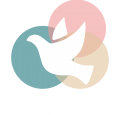

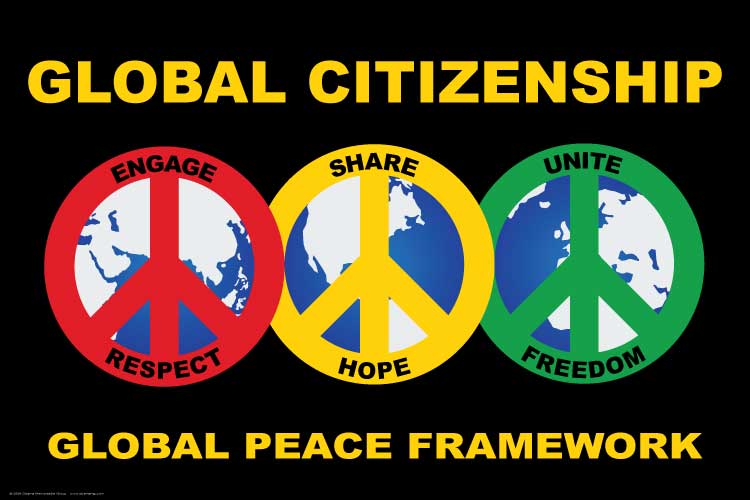
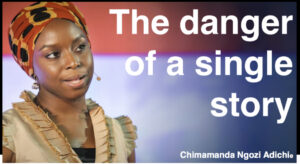
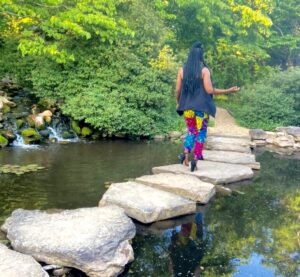
Wow beautiful piece! I love it! As multicultural person who has moved around, I know how hard it is to answer where I am from without going into explanation. I am glad someone out there understand.
Good day! I just wish to give you a huge thumbs up for your excellent information you have got here on this post. I am coming back to your blog for more soon. Good day! I just wish to give you a huge thumbs up for your excellent information you have got here on this post. I am coming back to your blog for more soon. נערות ליווי ברמלה
I definitely agree with what you said. And understand you. Sha nanje I’m also a TCK as well.
Thanks for your blog, nice to read. Do not stop.
Pingback: You Were Created for a Purpose - Being a Third Culture Kid